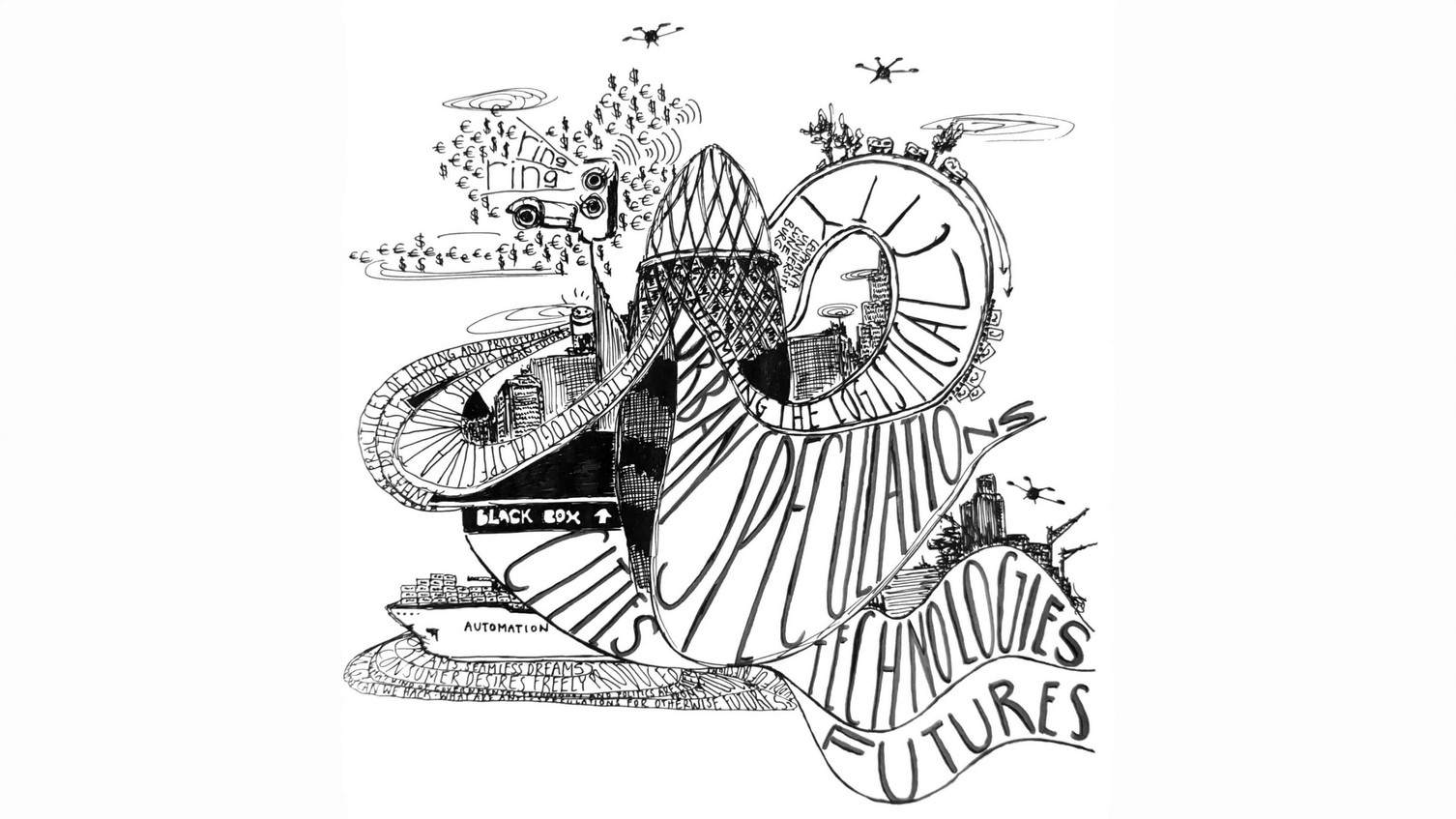Maja-Lee Voigt: Smart cities, digitised futures and Amazon’s ecosystem of dependencies
PhD project of Maja-Lee Voigt
2024-10-17 Amazon is increasingly controlling urban and digital infrastructures that are necessary for a functioning community. For three years, Maja-Lee Voigt has been investigating how the tech giant is permanently changing the way we live together. In this interview, the urban researcher reports on the results of the project ‘Automating the Logistical City: Space, Algorithms, Speculation’ (led by Prof. Dr. Armin Beverungen).
What is the starting point of your research in the project and in your dissertation?
We live in a time that is collectively perceived as highly uncertain due to a wide range of crises. The thesis of my PhD project is that the fear for one’s own life situation or for existential crises is being taken up by tech companies. Smart home gadgets, such as voice assistants or the doorbell Ring, which is supposed to protect against intruders, offer a supposed ‘security’. However, they also create more uncertainties from which Amazon can further profit. The company uses such technical solutions to a certain extent to create dependency among its customers. But the question is: at what cost? It is about how we want to live in the future, who will still know how these technologies work in an ever more digitalised world, and who gets to decide which of them may determine our everyday lives.
What have you found out so far about the world’s largest online retailer?
Amazon is usually only perceived as a virtual department store or as the Prime video service. But the company encompasses much more than that: it starts in the living room, for example with the ‘roommate’ Alexa, and extends from delivery people and white delivery vans on the streets up to server and cloud computing infrastructures. In general, we see that public infrastructure is increasingly being privatised. Or rather, private actors are building on public infrastructure. The focus here is on the extent to which the five major tech monopolies in the world (Amazon, Apple, Google, Meta Platforms and Microsoft) influence the regional policy of cities, municipalities and federal states, for example with their data and goods centres. We are particularly interested in the role of Amazon, as the company has received little attention in the smart city discourse so far. Therefore, we are also laying the foundation for further research.
What is your methodical approach?
Since we conduct critical research, Amazon does not necessarily want to talk to us. This means that many of the company’s processes are a black box to us and we have to try to get information from other sources. As an urban ethnographer, my research involves observing delivery locations, for example on the Veddel, and watching processes from the outside. It also involves conducting qualitative interviews. In Hamburg, I spoke to people in government agencies who are responsible for logistics and real estate or area distribution. In Dortmund, we found out that Amazon very likely does not pay any business tax – the public officials are also avoiding a clear answer. This raises the question: what happens behind closed doors?
Would you therefore call it investigative research?
We actually asked investigative journalists how we could proceed methodically. As critical tech researchers, we have an ethic that also includes considering very carefully where we store the data we collect. We don’t want it to end up with the tech companies we criticise. But thirty per cent of the world’s internet is now based on the technical infrastructure of the company’s subsidiary AWS (Amazon Web Services). That is where it gets really tricky to avoid Amazon. The company has created an ecosystem of dependencies.
What do you want to achieve with your research?
We want to raise awareness of Amazon’s ubiquity. It is important to us to discuss with the authorities what is happening to public goods and infrastructure. So that we can then think about possible alternatives together. We are also currently working on a story map that provides a low-threshold introduction to our results. I have already created mappings for my research, in which I attempt to translate content from the language of science into the visual medium. In addition, we are available to the media as experts on this topic. Armin Beverungen and I, for example, have just been featured on public radio programmes. In doing so, we are trying to spread the knowledge among people as much as possible to make clear: this is not something we just want to lock ourselves in at Leuphana. This is a far-reaching topic that concerns us all.
Thank you very much for this insight into your work!
Maja-Lee Voigt is a research associate in the research project “Automating the Logistical Space” at the Institute for Sociology and Cultural Organisation (ISKO). She is writing her dissertation on the topic “Cities on Demand? Unboxing Urban Un_Certainties from Amazon’s Algorithmic Architectures and Forecasted Futures” and is in close contact with colleagues at the Leuphana Centre for Digital Cultures (CDC).

